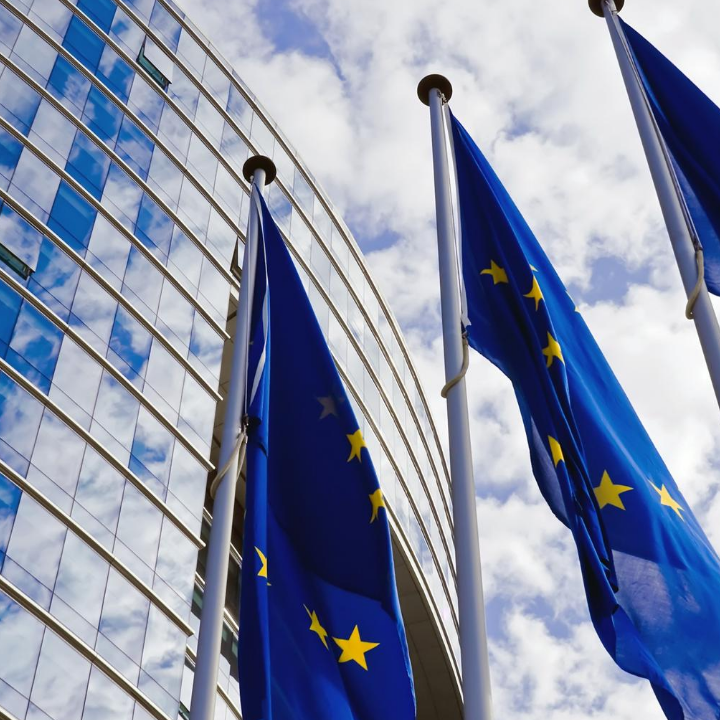EU Commission publishes proposal for a Directive on corporate sustainability due diligence

Photo: sinonimas, Getty Images via Canva
"Just and sustainable economy: Commission lays down rules for companies to respect human rights and environment in global value chains", 23 February 2022
Today, the European Commission has adopted a proposal for a Directive on corporate sustainability due diligence. The proposal aims to foster sustainable and responsible corporate behaviour throughout global value chains. Companies play a key role in building a sustainable economy and society. They will be required to identify and, where necessary, prevent, end or mitigate adverse impacts of their activities on human rights, such as child labour and exploitation of workers, and on the environment, for example pollution and biodiversity loss. For businesses these new rules will bring legal certainty and a level playing field. For consumers and investors they will provide more transparency. The new EU rules will advance the green transition and protect human rights in Europe and beyond...
The new due diligence rules will apply to the following companies and sectors:
- EU companies:
- Group 1: all EU limited liability companies of substantial size and economic power (with 500+ employees and EUR 150 million+ in net turnover worldwide).
- Group 2: Other limited liability companies operating in defined high impact sectors, which do not meet both Group 1 thresholds, but have more than 250 employees and a net turnover of EUR 40 million worldwide and more. For these companies, rules will start to apply 2 years later than for group 1.
- Non-EU companies active in the EU with turnover threshold aligned with Group 1 and 2, generated in the EU.
Small and medium enterprises (SMEs) are not directly in the scope of this proposal.
This proposal applies to the company's own operations, their subsidiaries and their value chains (direct and indirect established business relationships). In order to comply with the corporate due diligence duty, companies need to:
- integrate due diligence into policies;
- identify actual or potential adverse human rights and environmental impacts;
- prevent or mitigate potential impacts;
- bring to an end or minimise actual impacts;
- establish and maintain a complaints procedure;
- monitor the effectiveness of the due diligence policy and measures;
- and publicly communicate on due diligence.
More concretely, this means more effective protection of human rights included in international conventions. For example, workers must have access to safe and healthy working conditions. Similarly, this proposal will help to avoid adverse environmental impacts contrary to key environmental conventions. Companies in scope will need to take appropriate measures (‘obligation of means'), in light of the severity and likelihood of different impacts, the measures available to the company in the specific circumstances, and the need to set priorities.
National administrative authorities appointed by Member States will be responsible for supervising these new rules and may impose fines in case of non-compliance. In addition, victims will have the opportunity to take legal action for damages that could have been avoided with appropriate due diligence measures.
In addition, group 1 companies need to have a plan to ensure that their business strategy is compatible with limiting global warming to 1.5 °C in line with the Paris Agreement.
To ensure that due diligence becomes part of the whole functioning of companies, directors of companies need to be involved. This is why the proposal also introduces directors' duties to set up and oversee the implementation of due diligence and to integrate it into the corporate strategy. In addition, when fulfilling their duty to act in the best interest of the company, directors must take into account the human rights, climate change and environmental consequences of their decisions. Where companies' directors enjoy variable remuneration, they will be incentivised to contribute to combating climate change by reference to the corporate plan.
The proposal also includes, accompanying measures, which will support all companies, including SMEs, that may be indirectly affected. Measures include the development of individually or jointly dedicated websites, platforms or portals and potential financial support for SMEs. In order to provide support to companies the Commission may adopt guidance, including about model contract clauses. The Commission may also complement the support provided by Member States with new measures, including helping companies in third countries.
The aim of the proposal is to ensure that the Union, including both the private and public sectors, acts on the international scene in full respect of its international commitments in terms of protecting human rights and fostering sustainable development, as well as international trade rules...